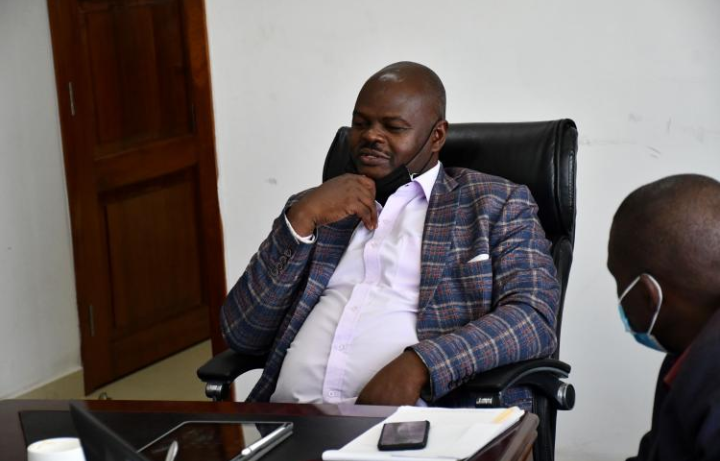The University of Nairobi (UoN), one of Kenya’s most prestigious higher learning institutions, has faced a major decline in its rankings and reputation.
At the center of this controversy is Brian Ouma, the Chief Operations Officer (COO), whose actions and decisions have sparked widespread criticism.
Many within the university and beyond point to Ouma as a key reason for the institution’s ongoing struggles.
His influence and management style have become a focal point in discussions about UoN’s governance challenges.
One of the most contentious issues involving Ouma is his role in the ousting of former Vice-Chancellor Prof. Stephen Kiama.
Prof. Kiama had been at the helm of UoN and was seen by many as a reformist leader, trying to navigate the university through a challenging financial environment and restore its academic excellence.
However, his leadership was cut short in 2022 when he was controversially removed from his position.
Sources within the university suggest that Ouma, with his substantial control over operations and administration, played a significant part in this removal.
Ouma’s influence is said to extend far beyond his official duties as COO.
Allegations have surfaced that his proximity to powerful figures within the university council gave him the leverage to make critical decisions, often bypassing the VC and other key stakeholders.
This centralized control has been a source of tension within the university, creating friction between various departments and leading to internal power struggles.
A critical example of this tension was when Ouma reportedly called in police forces to intervene during a university council meeting.
This action, viewed as heavy-handed and unnecessary, escalated conflicts and further alienated staff and faculty members.
The University of Nairobi Staff Union (UASU) has been vocal in their opposition to Ouma’s actions, accusing him of contributing to an oppressive working environment and undermining the authority of the university’s academic leadership.
The issues at UoN have not only been about governance but have also affected the university’s overall performance.
Under Ouma’s administration, critics argue that the university has seen a decline in its global and regional rankings.
Academic output has been reportedly hindered by internal squabbles and leadership instability, making it difficult for the institution to maintain its once-pristine reputation.
Some have argued that the COO’s actions reflect a prioritization of personal and political interests over academic excellence.
Ouma’s appointment as COO has raised eyebrows, with questions about how the process was conducted.
Insiders claim that his hiring was not the result of a competitive and transparent selection process, adding another layer of controversy to his position.
This has led many to question his qualifications for such a critical role within the institution.
The removal of Prof. Kiama was particularly significant as it symbolized the broader struggles the university faces.
His attempts to balance the university’s books and steer it away from financial disaster were not enough to shield him from the internal politics that ultimately led to his removal.
His supporters believe that he was unfairly targeted by factions within the university who were more concerned with maintaining control over its resources and operations.
The focus remains on whether the institution can recover from the damage inflicted by internal power struggles.
Political analysts and educational experts warn that unless reforms are implemented to address governance issues, the university’s decline may continue.
The instability at UoN serves as a cautionary tale for other institutions, highlighting how personal agendas can jeopardize the mission and vision of an academic institution.
The university’s staff, students, and alumni are left wondering what the future holds for the institution.
Will the University of Nairobi be able to rise above these internal conflicts, or will it continue its downward trajectory?
For now, all eyes are on the administration and the university council to see if they can steer the institution back to its former glory.
As for Brian Ouma, his role in UoN’s ongoing saga remains a subject of intense debate, with many questioning whether his influence will continue to shape the university’s future or if reforms will limit his power.





















Add Comment